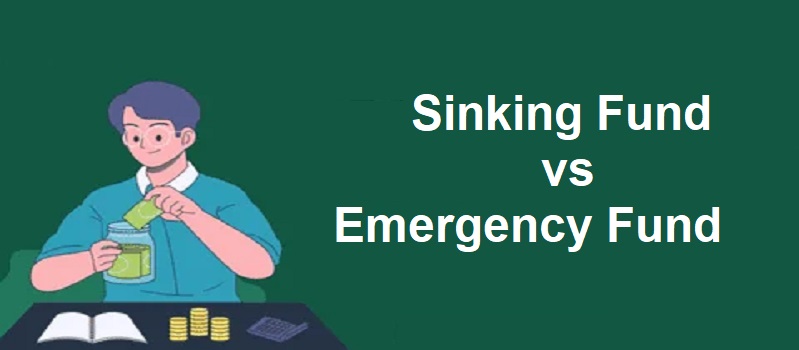Everyone wants to reach the lie goals without waiting. However, good things take time. You must invest by planning your lifestyle. It helps you split the aims into small, achievable milestones. You can achieve this by concentrating on one goal at a time. Besides, it requires saving a fixed amount every month. You may want to pay debts, buy a car or renovate a home. Whatever the goal, financial flexibility is a must. Unless you can save enough, you can’t achieve goals.
What if you can use existing debts to your benefit? Yes, options like debt consolidation loans may help you with that. You can save money by merging high-interest debts. It improves your credit score and reduces your monthly liabilities. Sounds interesting? Right?
It is great for individuals seeking solutions for debt management. However, the interest rates are generally high. It may imply missing a payment may affect your score drastically.
The blog discusses the pros and cons of debt consolidation loans. Whether you want to release money or manage debt better, read ahead.
What is a debt consolidation loan?
A debt consolidation loan is a financial facility to merge debts into a single monthly payment. You can consolidate any debt that’s hard to pay for you. For example- if you have multiple credit card payments, consolidate them. It reduces your liability for dealing with different providers. Moreover, it decreases the total amount to repay.
The loan interest rate remains fixed for a specific time. It helps in budgeting the repayment amount. You can choose the repayment period according to your finances. Generally, individuals with good credit scores get better rates. It makes the deal affordable for them.
Can you consolidate debts with a bad credit profile?
Yes, you can consolidate your debts despite a bad credit score. Most loan providers consider individuals with pending debts or other credit issues. Individuals with good income, employment history and permanent residency may qualify.
Besides, your monthly expenses should be lower than your income. You may get a debt consolidation loan with a bad credit score by reducing the lender’s risk. Here is how you can do that:
1) Keep your debt-to-income ratio low
The debt-to-income ratio is the ratio of total debts to total income. Individuals with low rates get better rates. Thus, try to balance the ratio by taking some active measures. Here are some ways to reduce the DTI:
- Increase your income by checking part-time sources
- Avoid exceeding the credit card limits
- Eliminate your name from joint accounts (unoperated)
2) Get a guarantor
A guarantor is someone known to the person. It could be a family or a friend member. He may help you get the best interest rates. The lender considers the guarantor’s and your profile. It helps him identify the affordability. A guarantor with a stable income and credit score helps qualify. Moreover, it helps fetch better interest rates and terms.
3) Borrow a lower amount than you need
Reducing the amount may help qualify. It also eliminates the risk for the lender. Check the amount you need to consolidate the debts. Identify whether you can budget for some debts instead. It automatically reduces the debts to consolidate.
These are some ways to consolidate the debts for a bad credit history. However, non-repayment may affect your credit history. It may lead to default and CCJ. It is one of the cons of debt consolidation loans.
Pros of Debt Consolidation Loans: Streamline your finances and boost savings
Debt consolidation loans are ideal for individuals and businesses. It helps manage the debt payment and reduces the monthly instalment payment. You can use the savings for other business needs. Here are other advantages of debt consolidation loans:
a) Fewer bills to manage
Consolidating most debts leaves you with little liabilities. You can easily plan and budget for them. For example, if you merge 8 out of 10 debts, you only need to pay those 2 debts. However, debt consolidation loans also require constant payments. Identify your savings and liabilities. Check whether you can save from the existing liabilities. It may help you spot some bills that you incur unnecessarily. Eliminate such aspects and save money.
b) Improves your credit score
Most individuals struggle to get amazing credit card deals and loans. The primary reason is – poor credit score. Debt consolidation offers an opportunity to improve credit rating. Identify the costly debts and consolidate them. You may witness a credit jump of up to 30 points. It is vast if you have been struggling for a long. An improved credit rating reveals your potential to repay debt. Thus, you may get instant approval. Moreover, you can grab an affordable loan quote.
c) Reduce overall interest on debts
Interest costs concern individuals with a whopping debt count. The penalties and the additional interest charges increase total liabilities. It further makes it challenging to pay. However, a debt consolidation loan relieves one from the interest ambush. It decreases the interest costs considerably. Eventually, you pay reduced monthly payments. Individuals find it easier to budget for over previous arrangements.
Cons of debt consolidation Loans: Protect your finances against the costs
Yes, a debt consolidation loan may help streamline finances. However, analyse the flip side of the loan. The loan may help you improve your temporary financial difficulty. It is not ideal if you have been struggling with multiple payments for over four years.
A debt settlement company may help you there. The experts negotiate the payments with creditors on your behalf. They help reach a suitable debt payment arrangement. Moreover, non-repayment on debt consolidation loans affects finances. Here are other disadvantages of debt consolidation loans:
a. Upfront fees make the loan costly
Some debt consolidation loans charge an advance fee before providing the loan. It is the process that they follow to avoid risk. However, check verified loans from direct lenders in the online marketplace. The verified experts don’t charge any upfront fee. Instead, provide a transparent fee arrangement. It helps the customer decide better.
Moreover, they provide the option to adjust payments. It helps repay the dues comfortably. Avoid companies charging upfront costs.
b. It is not a one-stop solution
Individuals are habitual to leading a financial lifestyle. You may enter the debt loop again with casual financial habits. Thus, debt consolidation may not be a one-stop solution. Moreover, qualifying requires a high credit score. You may get one with bad credit as well. However, the interest rate stays competitive. So, work on your financial habits. Try to overcome overspending to avoid debt.
Bottom line
Debt consolidation helps merge multiple debts into one payment. It reduces your liabilities, interest rates and monthly payments. Moreover, it helps with building credit ratings. It is good if you want a solution to temporary debts. However, the interest rates, hard eligibility criteria and costs may affect payments. It may hamper your finances due to mismanagement. Thus, decide according to the above pros and cons. Choose it if you may benefit from it.

Mark Williams works as one of the Loan Advisors at a direct lender firm, Onestoploansolution. He has been working with the lender for about 15 years. He has been known to facilitate his employer in remarkable ways from writing to consulting and whatnot. He is a professional who wants to explore more of the UK financial market, the loan products and how customer requirement changes with time.






